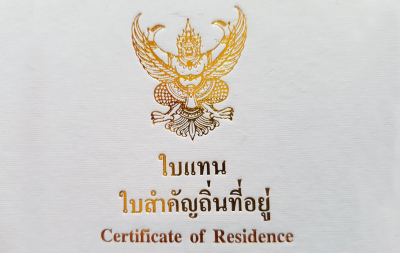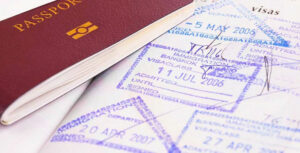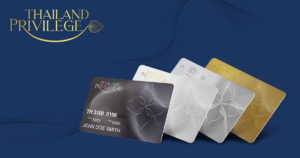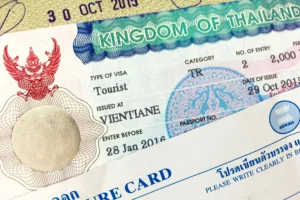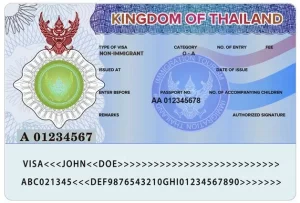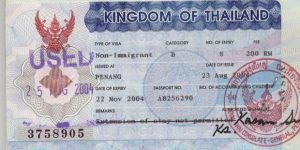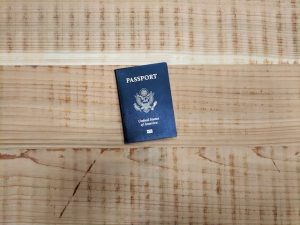Permanent Residence in Thailand. Thailand, with its rich cultural heritage, stunning landscapes, and vibrant economy, is an attractive destination for expatriates seeking to make a long-term commitment. For those who wish to live in Thailand indefinitely, obtaining permanent residence (PR) status is a significant step. While the process is rigorous and selective, the benefits of holding PR status in Thailand make it an appealing option for those who qualify. This article provides an in-depth look at the requirements, application process, benefits, and considerations for obtaining permanent residence in Thailand.
1. Understanding Permanent Residence in Thailand
Permanent residence in Thailand allows foreign nationals to reside in the country indefinitely without the need for visa renewals. However, unlike some other countries, Thailand’s PR status does not grant the right to work, which requires a separate work permit unless the individual is engaged in specific professions or is granted an exemption under Thai law.
1.1 Who Can Apply for Permanent Residence?
Thailand’s PR status is open to foreign nationals who meet certain criteria, typically involving long-term residence in Thailand, financial stability, and contribution to Thai society or economy. The following categories of applicants are generally eligible to apply:
- Long-Term Residents: Foreign nationals who have held a non-immigrant visa for at least three consecutive years and have made continuous annual extensions are eligible to apply for PR. The applicant must be holding a non-immigrant visa at the time of application.
- Investors: Foreign nationals who have invested a substantial amount of money in Thailand (usually in government bonds, property, or a Thai company) may qualify for PR under the investment category. The specific amount required can vary, but it is generally set at a minimum of 10 million THB.
- Highly Skilled Professionals: Individuals with expertise in fields that are beneficial to Thailand’s development, such as engineering, technology, or education, may be eligible for PR under the skilled professional category.
- Business Owners: Foreign nationals who own and operate businesses in Thailand that contribute significantly to the Thai economy may apply for PR, provided they meet the financial and operational criteria set by the Thai government.
- Family Members of Thai Nationals: Foreign spouses, children, or parents of Thai citizens may be eligible for PR. This category also includes foreign nationals who have legally adopted Thai children.
2. Application Process for Permanent Residence
Applying for permanent residence in Thailand is a detailed process that requires thorough preparation, documentation, and compliance with Thai immigration laws. The process typically involves several steps, including submitting an application, undergoing interviews, and meeting financial and character requirements.
2.1 Required Documentation
The application for PR in Thailand requires a comprehensive set of documents. While the specific requirements may vary depending on the applicant’s category, the following documents are generally needed:
- Passport: A valid passport with copies of all pages, including visa stamps and entry records.
- Non-Immigrant Visa: Proof of having held a non-immigrant visa for at least three consecutive years.
- House Registration Book (Tabien Baan): The applicant must be registered at a Thai address and include a copy of the house registration book.
- Work Permit (if applicable): A copy of the applicant’s work permit, if employed in Thailand.
- Marriage Certificate (if applicable): For applicants applying under the family category, a marriage certificate and evidence of relationship, such as photographs or joint financial statements, are required.
- Evidence of Financial Stability: Bank statements, tax records, and other documents proving the applicant’s financial stability and ability to support themselves in Thailand.
- Employment Contract or Business Documents (if applicable): For business owners or employed professionals, a copy of the employment contract, company registration documents, and proof of tax payments are required.
- Police Clearance Certificate: A police clearance certificate from the applicant’s home country, as well as a clearance certificate from the Thai police, is mandatory.
- Medical Certificate: A medical certificate issued by a licensed Thai doctor, proving that the applicant is in good health and free from contagious diseases.
2.2 Submission and Interview Process
The application for PR must be submitted to the Immigration Bureau in Thailand during the annual application period, which typically occurs in December. The applicant must be physically present in Thailand at the time of submission.
- Application Fee: The non-refundable application fee is required upon submission and varies depending on the applicant’s category and nationality.
- Interview: After submitting the application, the applicant will be required to attend an interview with immigration officers. The interview typically focuses on the applicant’s background, reasons for seeking PR, and plans for the future in Thailand. It is conducted primarily in Thai, so applicants who are not fluent in Thai may wish to bring a translator.
- Approval Process: The approval process for PR can be lengthy, often taking several months or even years. During this time, the applicant’s background, financial records, and other submitted documents will be thoroughly reviewed. The final decision is made by the Immigration Commission, which includes representatives from various government agencies.
3. Benefits and Rights of Permanent Residence in Thailand
Obtaining permanent residence in Thailand comes with several advantages, both in terms of legal status and practical benefits. However, it is important to note that PR status is not the same as citizenship and does not confer all the rights of a Thai national.
3.1 Legal and Residential Rights
- Indefinite Stay: PR holders can reside in Thailand indefinitely without the need to apply for visa extensions or renewals. This is one of the most significant benefits of PR status, as it provides long-term stability for expatriates.
- Work Permit Exemption: While PR status itself does not grant the right to work, PR holders are eligible for an exemption from the work permit requirement in certain circumstances, such as being employed in specific professions or industries.
- Ownership of Property: PR holders can legally own a condominium unit in Thailand without the restrictions imposed on foreign nationals. They are also allowed to lease land for up to 30 years, with the option to renew the lease.
- House Registration: PR holders can be registered on a Thai house registration book (Tabien Baan) in the same way as Thai citizens. This can simplify many legal processes, such as opening bank accounts, applying for loans, or dealing with government agencies.
- Thai ID Card: PR holders are eligible to apply for a Thai ID card, known as the “Pink ID Card,” which can be used as a form of identification in Thailand.
3.2 Family and Social Benefits
- Family Sponsorship: PR holders can sponsor their foreign spouse and children for non-immigrant visas, making it easier for families to stay together in Thailand.
- Access to Public Services: While PR holders do not have the same level of access to public services as Thai citizens, they are eligible for certain benefits, such as access to the Thai public healthcare system under specific conditions.
- Pathway to Citizenship: After holding PR status for a minimum of five years, PR holders may apply for Thai citizenship. This can be a significant advantage for those who wish to fully integrate into Thai society and enjoy the full rights of citizenship.
4. Challenges and Considerations
While the benefits of obtaining PR in Thailand are significant, the process is not without its challenges. Applicants must be prepared for a rigorous and potentially lengthy process, and should carefully consider their long-term goals before applying.
4.1 Stringent Requirements
The requirements for PR in Thailand are strict, and not all applicants will qualify. The financial and legal documentation required can be extensive, and any discrepancies or missing information can result in delays or rejection of the application.
4.2 Language Barrier
The application process, including the interview, is conducted primarily in Thai. Applicants who are not fluent in Thai may find the process challenging and may need to rely on a translator or legal representative to navigate the system.
4.3 Limited Rights Compared to Citizenship
While PR status offers many benefits, it does not confer all the rights of Thai citizenship. PR holders cannot vote, hold public office, or participate in certain professions that are reserved for Thai nationals. Additionally, PR status can be revoked under certain circumstances, such as committing a serious crime or failing to maintain continuous residence in Thailand.
4.4 Time-Consuming Process
The application process for PR can be time-consuming, with approval often taking several years. Applicants should be prepared for a potentially lengthy wait and should have a plan in place for maintaining their current visa status during this period.
Conclusion
Obtaining permanent residence in Thailand is a significant milestone for expatriates who wish to make a long-term commitment to living in the country. While the process is demanding and requires careful preparation, the benefits of PR status, including indefinite stay, property ownership rights, and the potential pathway to citizenship, make it an attractive option for those who qualify.
By understanding the requirements, navigating the application process carefully, and considering the long-term implications of PR status, foreign nationals can successfully achieve their goal of becoming permanent residents of Thailand, enjoying the rich cultural, social, and economic opportunities the country has to offer.

